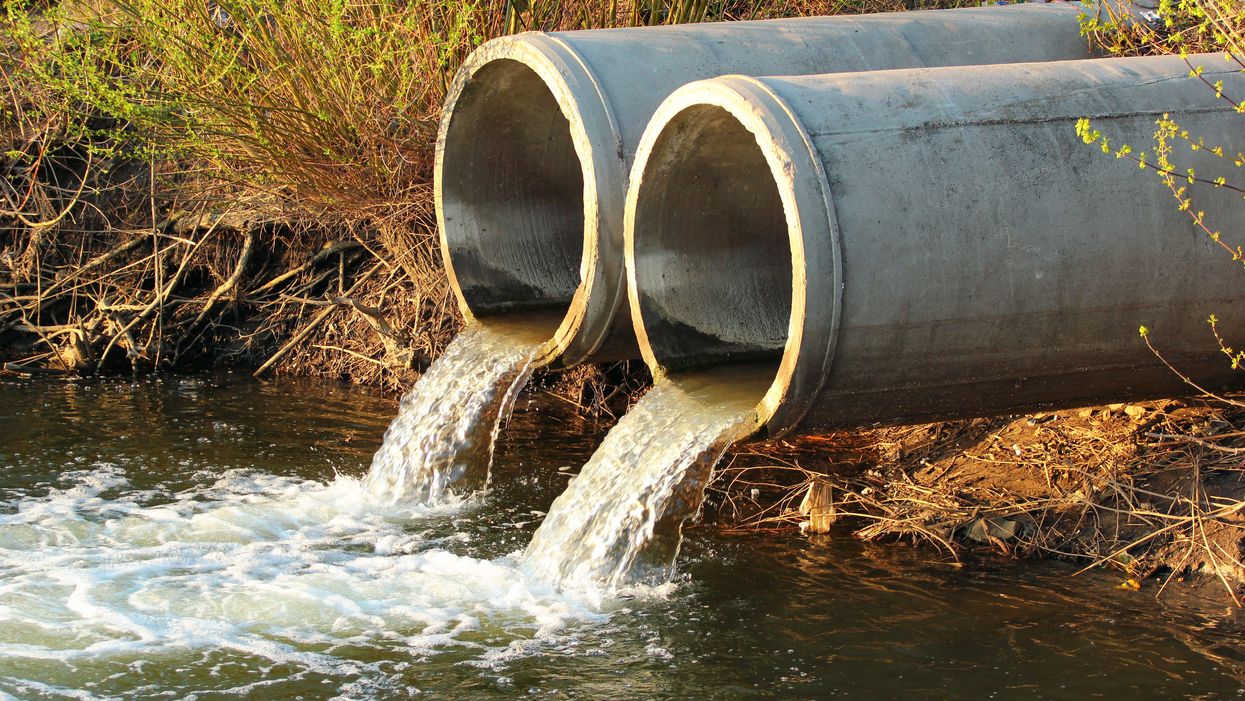A furore has erupted over legislation that will allow companies to continue dumping raw sewage into rivers and seas.
Last week, parliament voted against an amendment to a bill that would have prevented this from happening, causing backlash on social media and criticism from opposition MPs.
So, what is it all about?
What did MPs vote for?
The vote was for an amendment to the Environment Bill which sought to place a legal duty on water companies not to pump sewage into rivers.
It was proposed in the House of Lords by the Duke of Wellington, Charles Wellesley and would have also forced water companies and the Government to “take all reasonable steps” to avoid using the combined sewer overflows.
Sign up to our new free Indy100 weekly newsletter
It was proposed because in 2020 raw sewage was discharged into waters more than 400,000 times, according to data from the Environmental Agency, over a total of more than 3.1 million hours.
Meanwhile, figures collected by charity the Rivers Trust show that all of England’s rivers are currently failing to pass cleanliness tests, with 53 per cent of them failing at least partly because of water companies releasing sewage into them.
Another amendment the government voted against was bringing in stricter air quality targets.
What is the Environment Bill?
In general, the Environment Bill “will clean up the country’s air, restore natural habitats and increase biodiversity,” according to a government press release.
“The bill will also outline how the government will reduce waste, make better use of resources, and improve management of water resources in a changing climate.
“The bill will crack down on water companies that discharge sewage into rivers and will include a world-leading legally-binding species target for 2030, aiming to halt the decline of nature and to protect beloved British animals, such as red squirrels and hedgehogs.”
The bill would also set up a watchdog - the Office for Environmental Protection - to monitor progress on improving the environment.
Who voted for it and who voted against the amendment?
The environment minister, George Eustice instructed his MPs to vote against the amendment but 22 Conservative MPs rebelled against the government. Labour, the Lib Dems and other opposition parties also voted against the government.
How have people reacted?
Reacting to the legislation, people were furious and many blamed Brexit as policies like these were previously set in part by the EU.
The Labour Party slammed the government and has said they will challenge it:
Conservative MPs, however, defended the policy and claimed the backlash was unfair:
In a blog, MP Robert Courts said the plan was expensive and had not been thoroughly assessed.
“This all sounds admirable, and indeed is something I support in principle. But the trouble is that the Duke’s amendment came with no plan as to how this can be delivered and no impact assessment whatsoever,” he wrote.
Meanwhile, David Davis said, following the killing of David Amess, that we should be “thinking about the language we use online and the effect it has” and called out an activist who criticised him.
He said people were “spreading hatred on Twitter”.
But people said concerns were legitimate and that the activist in question had engaged with him politely:
What has the government said?
A government source told MailOnline: “Tory MPs have categorically not voted to allow water companies to dump raw sewage into our rivers and seas.
“The provisions in the Environment Bill will deliver progressive reductions in the harm caused by storm overflows.
“The Environment Bill requires us to set a target to drive progress on water quality, and we are already taking significant action to address water quality more widely. Claims to the contrary are simply wrong.”
Indy100 contacted the Department for Environment, Food and Rural Affairs to comment on this story.
In a blog, they said:
“The amount of sewage discharged by water companies into our rivers is unacceptable. We have made it crystal clear to water companies that they must significantly reduce sewage discharges from storm overflows as a priority. We have every confidence that the provisions in this bill will absolutely deliver progressive reductions in the harm caused by storm overflows and any suggestion to the contrary is both disingenuous and untrue.
They outlined measured in the bill including making water companies publish data and monitor water quality which they see as helping with the issue.
A spokesperson said: “The amount of sewage discharge by water companies into our rivers is unacceptable. We have made it clear to water companies that they must significantly reduce sewage discharges from storm overflows as a priority. To this end we have added a range of new legally-binding obligations directly on water companies in the Environment Bill, as well as over £3 billion of water company investment to tackle pollution in rivers, and we expect to see results.
“The Storm Overflows Taskforce – set up last year – has already taken steps to improve monitoring and transparency, as well as uniting the industry on a long-term goal to eliminate harm from storm overflows. The Government recognises the importance of protecting the nation’s natural environment and we are investing accordingly.”
What happens next?
The bill is pinging back and forth from the Commons to the Lords and it is now set to return to the Lords on Tuesday, then back to the Commons later next week for another vote.














